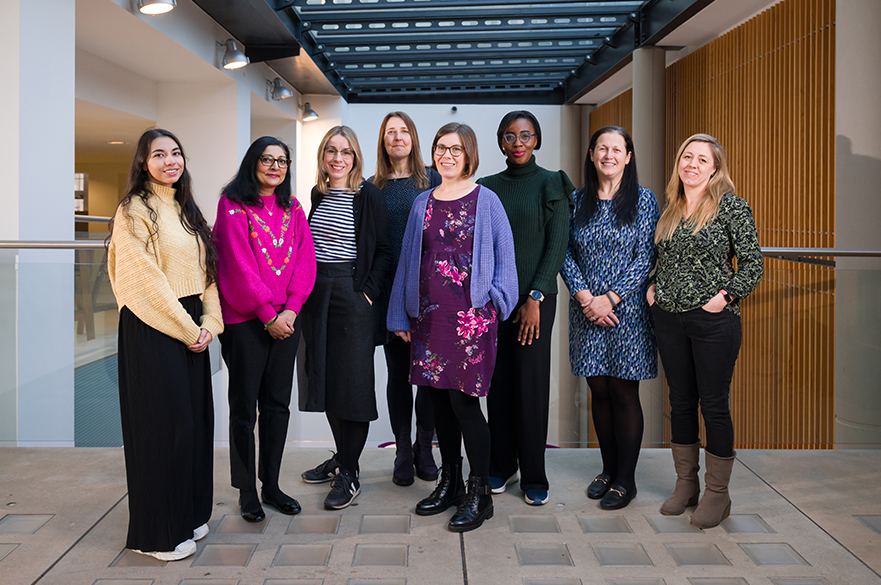Applying for your visa
Applying for a visa can take time and can even seem a bit scary! Whether you’re planning to start a new course here or are already studying with us, you’ll find the information you need about making a successful visa application on this page. Remember we’re here to help every step of the way.
Which visa?
Most international students studying undergraduate or postgraduate courses apply for a Student visa using a CAS (Confirmation of Acceptance for Studies), a unique reference number issued by the University which acts as confirmation that you’ve been unconditionally accepted on to a course at NTU. You need to have met all the conditions of your offer before we can provide you with a CAS number.
If you’re planning to do a course that is shorter than six months, for example our Global Summer School or some of our Pre-sessional English courses, you may have the option of applying for a short-term Student visa.
Please be aware that if your flight is transiting via an EU country, you may need to apply for a Schengen visa before travelling. Please check whether this requirement will apply to you before making your travel plans.
Please visit the Gov UK website for all the information you need on immigration matters.
Step-by-step guides to your visa application
You can find a detailed step-by-step guide to making a successful visa application, whether you’re:
- applying for Student visa outside the UK
- finding a visa application centre in your country
- applying for the Graduate route visa
- applying for or extending a Student visa inside the UK
- looking for information on short-term Student visas (for semester-long exchanges less than six months)
- looking for information on dependant visas (for family members)
- looking for information on visitor visas (parent visa for graduation).
- looking for information about financial requirements.
Making a successful visa application
The requirements for Student visa applications can be complex and are sometimes confusing. It’s not unusual to get them wrong, or to misunderstand.
You'll need to prepare the following financial evidence if you're applying for a Student visa:
- Enough money to cover the outstanding tuition fees for the first or current year of your course (this is shown on your CAS).
- Another £1,136 per month for your living costs. If you are studying in London the requirement is £1,483 per month. This figure increased on 2 January 2025.
- This needs to be saved in a bank account in your name or your parents' name for at least 28 days before you apply for your visa.
You will also need to upload supporting documents when you apply for a visa. If any of these documents are not in English, you should provide an official translation.
You may be required to have an interview as part of your visa application. Make sure you are well prepared for this and are able to talk about your NTU course and why you have chosen to study at NTU. We recommend that you read carefully our helpful advice on what to prepare for the credibility interview.
Here are a few examples of common mistakes and misconceptions made by applicants which can lead to a Student visa refusal:
- The student has not saved enough money (sometimes due to changing exchange rates).
- The student has not saved the required money for a long enough period (minimum 28 days).
- The student has not provided financial evidence in the right format, or it is not in the student’s or their parents’ name (for example they may have used another relative’s name, or the name of a family business).
- The student has forgotten to include a required document (for example a TB test, or a birth certificate if the bank statement is in the parents’ name, or official translations for any documents that are not in English).
- The student has not given the UKVI enough information to show genuine interest and commitment to studying in the UK. In the interview, for example, the student may not have shown that they know enough about the University and the course they plan to study, or may not have given enough information about how they will cover the cost of their studies.
Follow our advice on making a successful visa application and if you have questions, we are here to help.
eVisa
From October 2024, you will receive an eVisa. UKVI will email you the decision letter and you will access your visa online. You must ensure that your details are up-to-date and accurate. You will be able to prove your immigration status when needed by generating a share code.
You must not travel to the UK before you receive a decision on your Student visa. If you enter the UK as a visitor you will not be allowed to enrol on your course and start your studies. You may be asked to leave the UK again and re-enter once a decision has been made on your Student visa.
Support and advice

Whether you’re planning to start a new course here or are already one of our students, our International Student Support Service team can respond to questions you may have about your visa application and the documents you need in order to give you the best chance of success.
We are highly trained, highly experienced, and we deliver our advice in line with the OISC (UK Government Office of the Immigration Services Commissioner) code of standards.
You can contact us by email or call +44 (0)115 848 2631 and we’ll do our very best to help you.
If you’re already in the UK (for example, if you are joining NTU from another institution or have recently finished your PEAP or NTIC course) you can use our check and send service.